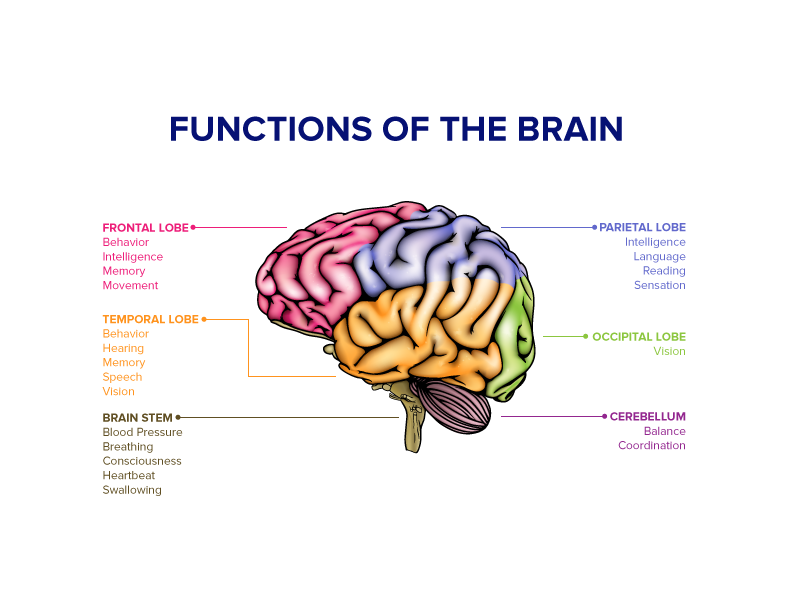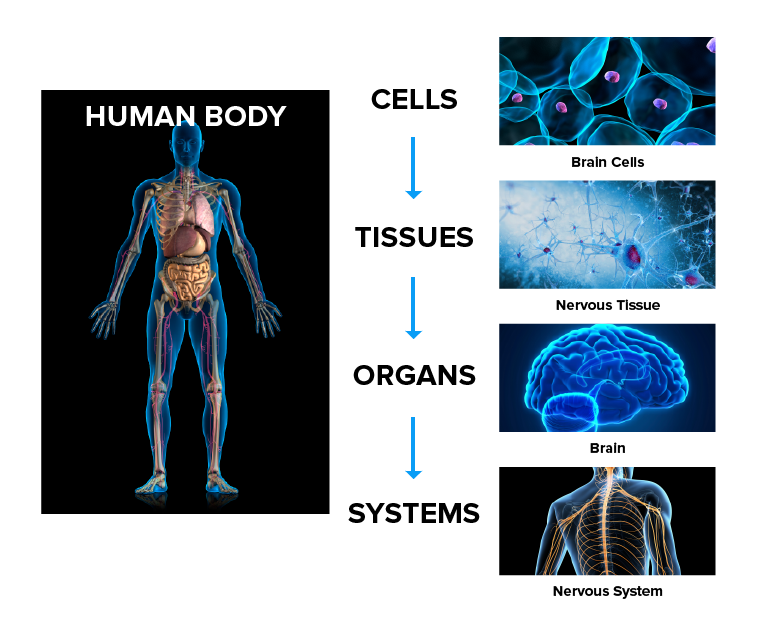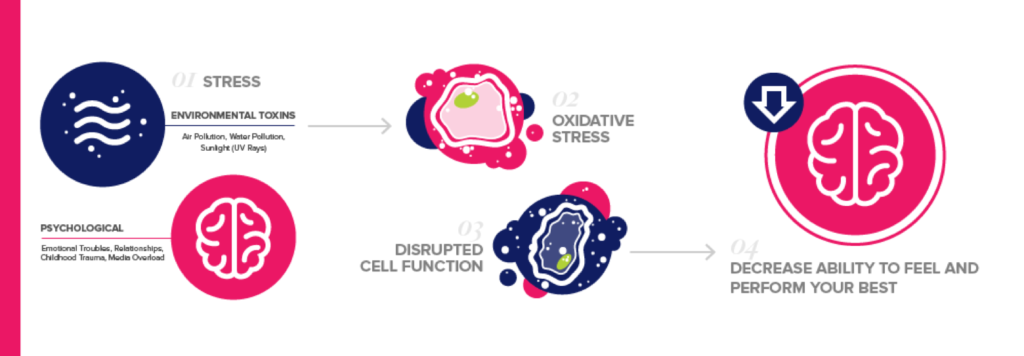Stress is one factor that is believed to interrupt normal brain function. But why?
Jan 05, 2022
We’ve all experienced it before. You’re in a meeting giving a presentation, writing a paper for school, or talking to a friend when suddenly you just can’t seem to find the word you’re looking for. Or, you’re reading a book and suddenly realize that you have been looking at the same page for the last ten minutes but can’t remember anything that you read.
Experiences like these happen to the best of us, always at the most inopportune times and often happening more frequently than we would like. So what’s the cause?
At this point, it’s hard to say. Though it is believed that this so-called “brain fog” or “brain fatigue” is a result of things like – lack of sleep, poor diet, exposure to environmental toxins, and decreased physical activity. In other words, stress from a variety of sources appears to negatively impact overall brain performance.
Let’s look at why this might be.
The Amazing Brain
The human brain is much like a computer. Not in the literal sense of course. As we know, the human brain is much more complex than a computer. Nonetheless, the comparison provides a good framework when trying to understand the basic inner workings of the mind. For example, like a computer, the human brain:

- Manages information (i.e., gathers information through the senses and tells the body how to react to a given situation)
- Contains specialized structures to handle different functions (see picture)
- Has short- and long-term memory
- Has the capacity to deal with immediate issues
- Has functions that come hardwired into the system (e.g., breathing, sneezing, and regulating heart beat) and, unlike computers, acts a lot like a sponge and is readily shaped by everyday experiences
- Requires energy to run (i.e., carbohydrates, proteins, and fat that come from food)
In essence, the brain is arguably the most important organ in the human body. It allows us to think and feel, controls and coordinates actions and reactions, and enables us to have memories and feelings. Tasked with so many important jobs, the brain requires optimal conditions to operate efficiently. It would make sense then that anything interrupting its day-to-day operations could negatively impact its many functions.
Stress & Brain Performance
As noted above, stress is one factor that is believed to interrupt normal brain function. But why?
If you think back to your earliest biology class, you might remember learning about the basic structure of the human body. It goes something like this:

- The human body is made up of about 37 trillion CELLS.
- Cells are collected into TISSUES.
- Tissues are arranged into ORGANS.
- Organs combine to form SYSTEMS.
- Systems make up the human BODY.
After learning about the structure of the body, you moved on to the different functions of the body. It was during this time that an important topic was discussed – HOMEOSTASIS, an essential function carried out by all body systems that works to maintain a constant internal environment.
This concept describes the very reason why humans can survive in a variety of environments with diverse diets and lifestyles. Keyword – ADAPTABILITY. Because the cells of the body can only function under very specific conditions (e.g., temperature, nutrient availability, fluid balance, etc.), the body has many systems in place that help to keep these conditions stable. When the body works to maintain stable conditions, cell function remains stable and keeps the body’s organs and systems working like they should.
What prevents the body from maintaining homeostasis?
This is where the story of STRESS comes into play. Here’s how it works:
- Stress, from both internal and external factors, disrupts the body’s internal environment.
- The body works to correct the disruption by initiating 1) several physiological responses that are aimed at maintaining normal homeostasis as well as 2) cellular stress responses that promote cellular health and survival.
- High-stress loads place a burden on the body’s adaptive mechanisms, challenging the body’s ability to correct the disruption. This places the cells under stressed conditions (often referred to as oxidative stress). Though some stress is needed for normal functioning, too much stress can be a bad thing.
- When cells are overly stressed they aren’t able to function normally.

With this information in mind then, it becomes clear that the stress we experience in everyday life (e.g., pollution, poor diet, sleep deprivation, etc.) could eventually disrupt the normal functioning of our brain cells. Eventually, this might present itself as absent-mindedness, brain-fog, decreased mood, and/or a lack of focus.
So what can you do to optimize your brain performance? KEEP OXIDATIVE STRESS TO A MINIMUM!
Where does oxidative stress come from?
Remember – oxidative stress stems from the stress you experience in everyday life. Here are a few sources of everyday stressors that can lead to cellular damage and potentially interrupt normal brain function:
- Emotional stress (deadlines, relationship, traffic)
- Physical stress (aging, sleep deprivation, too much or too little exercise, poor nutrition)
- Environmental stress (air, water pollution)
- Financial stress (bills)
Struggling with Stress? Try AXIO®
AXIO® is a unique, multi-dimensional brain performance product that delivers anti-fatigue, positive mood, mental focus and STRESS RESILIENCE benefits. It contains specific phytonutrients (i.e., Monterey pine bark extract, quercetin, and green tea extract) that are known to help protect the body from oxidative stress by activating Nrf2 – the master regulator of the body’s own internal defense system. With increased Nrf2 activity, your body is better able to cope with the stress you experience on a day-to-day basis.*
Here are some additional tips to help you reduce your stress levels:
- Get moving – Whether it’s a relaxing yoga class or something more adventurous like hiking, being active increases levels of endorphins (aka – “feel-good” hormones) helping to reduce stress and improve your mood.
- Socialize – Spend time with positive people who enhance your life. A strong support system is important to help get you through those tough times.
- Eat a balanced diet – Well-nourished bodies are better able to withstand stress. Be sure to eat plenty of fruits and veggies and keep your energy up with balanced, nutritious meals throughout the day.
- Get adequate sleep – Not only does sleep help you feel more refreshed and ready for a busy day, but it is also a time for your body to repair itself. Shoot for around 8 hours of sleep every night to help keep your stress levels down.
Lorem ipsum dolor sit amet, consectetur adipiscing elit. Cras sed sapien quam. Sed dapibus est id enim facilisis, at posuere turpis adipiscing. Quisque sit amet dui dui.
Stay connected with news and updates!
Join our mailing list to receive the latest news and updates from our team.
Don't worry, your information will not be shared.
We hate SPAM. We will never sell your information, for any reason.

